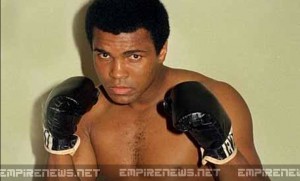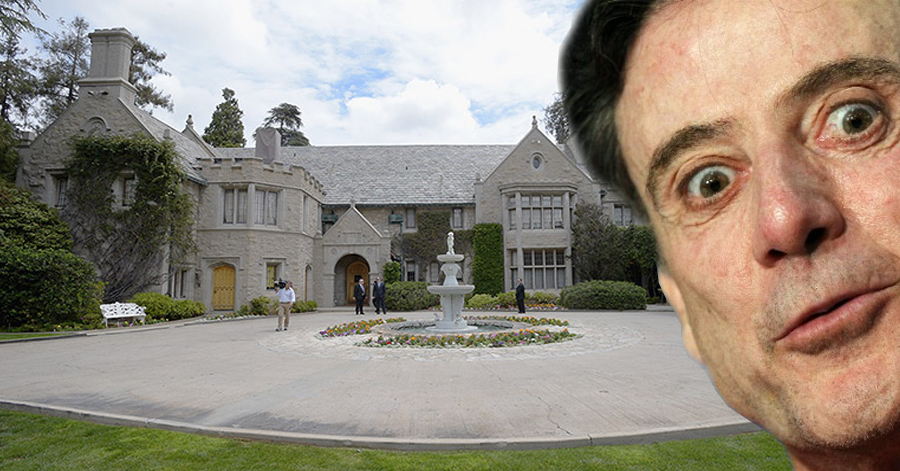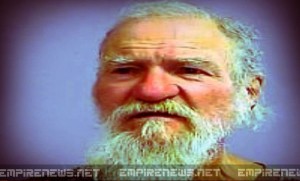LOUISVILLE, Kentucky – 
Once a year, volunteers who live near and along the great Ohio River participate in an event dubbed “The Annual Ohio River Sweep,” which extends the entire length of the massive waterway, from Pittsburgh, PA to Cairo, Illinois. Organizers said when the River Sweep started 25 years ago, finding items like washing machines, cars, and sunken fishing vessels was common.
“We’re not finding any of the large objects anymore, but we are finding what I call lots of ‘convenience items.’ A lot of the pop bottles, a lot of the plastic bags. So there is still a lot of work to be done on the Ohio River,” said River Sweep coordinator Lisa Cochran.
This year the great sweep fell on June 21. It was business as usual for volunteers from state to state, that is, except for one man. Robert Bradbury was born, raised and has lived his entire life in the thriving city of Louisville, Kentucky. Home of boxing great and humanitarian Muhammad Ali. What he found during the Sweep is most definitely one of the more mysterious and infamous pieces of sports hardware in American history.
“I saw something round and fairly large – well, bigger than any coin I know of, sticking out of the mud. I went to retrieve it and I realized it was a medallion of some kind,” Bradbury said. “As a joke, I walked over to my wife Pattie and told her ‘Hey I found Ali’s gold medal that he threw off the Second Street bridge in 1960!’ We both laughed as I tried to get it clean enough to make out what the design was on the thing.”
It was when he started to make out a figure on the medallion that Robert started to wonder what it really was.
“I finally rubbed the thing off enough so that I could see an image on the medallion, it almost looked to me like some ancient Roman God or something, then it clicked, I looked at my wife and said, ‘Oh dear Lord, the 1960 Olympics were in Rome!’ The thing totally looked Roman to me so I started to get excited. She told me to calm down because most medallions have that kind of design on them.”
It turns out that his wife was wrong, and there was a definite reason to get excited.
After about a week of searching for an appraiser, they located an Olympic Medal collector and expert living in Indianapolis, Indiana. So they made the two-and-a-half hour drive to meet Wade Somerville, who has been collecting Olympic Medals for fifteen years. Somerville used a special cleaning solution designed specifically for fragile, valuable precious metals.
“Not five minutes went by before he lit up like a Christmas tree, turned and said to us ‘What you have here, is an authentic 1960 Olympic Gold Medal. This thing is the real deal.'” The three of them were speechless. They all knew the old story.
Ali, then named Cassius Clay, cherished his gold medal from the 1960 Olympics so much that he wore it all the time, even while sleeping. Then one day, sickened by a horrific bout of racism he encountered that evening, the 18-year-old light- heavyweight boxing champion stood on the Second Street Bridge and threw the medal into the Ohio River.
He never revealed the story until a documentary was made about him in 1975, and he explained what happened. For various reasons, however, people seemed to want to believe he was making the story up to get a rise out of his fans and the Olympic committee, just being dramatic as he always was. The incident took place in the fall of 1960. Fast-forward fifty-four years. June 21, 2014, Robert Bradbury pulls an authentic 1960 Olympic Gold Medal from the muddy banks of the Ohio River.
“There is no doubt in my mind that this is the very gold medal Cassius Clay threw off that bridge. It is the most amazing thing I could possibly see with my own eyes!” said Somerville.
“I was like, ‘Oh Lord, now what do we do?'” Bradbury revealed. “We decided the only right thing to do was somehow contact the Ali family, so we went to the Muhammad Ali Center and swiftly handed it over to the curator. They were extremely excited as you could imagine and treated us like royalty.”
About a week went by when the Bradbury’s received a phone call from Chief Curator Sarah Lynn Jeffcoat, she asked the couple to meet them down at the Center as soon as possible. When they finally arrived, they were amazed by what was waiting for them. A check, written by the Ali family for the sum of $200,000.
“We both just burst into tears,” said Bradbury. “It is such an amazing thing to be actually now be a part of this amazing human-being’s story. We are linked with him for eternity, and they could not have been more thankful and appreciative. They have reached out and changed our lives forever, we are so grateful!”


































